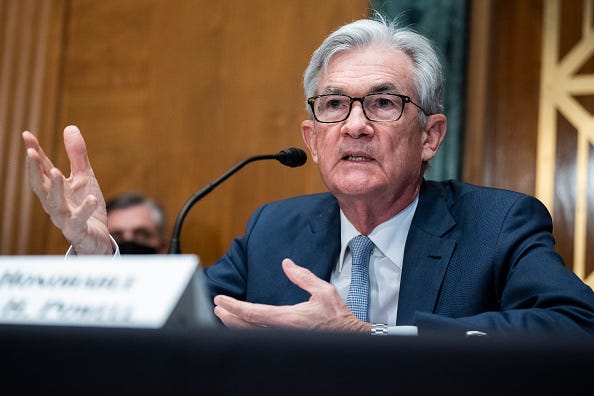
With inflation already at a decades-long high, Federal Reserve Chairman Jerome Powell reported that it will likely worsen due to Russia's invasion of Ukraine.
The expectations from the central bank were that pricing increases would drop in the coming months. However, Powell shared with the Senate Banking Committee on Thursday that Russia's actions have changed that.
Powell told the Senate Banking Committee that due to Russia's role in global energy and other markets, "we're going to see upward pressure on inflation at least for a while."
Several factors play a part in inflation sticking around, including sanctions against Russia and businesses deciding to pull out of the country, according to Reuters.
Powell warned that this could lead to financial risk-taking, which would mean fewer investments are made. Either way, the central bank chairman said that any action taken from here on out needs to be considered carefully.
"We need to be alert and nimble as we make decisions in what is quite a difficult environment," Powell said.
Powell also reported that the Federal Reserve would not tolerate a long interval of higher inflation. If needed, a rise in interest rates could be used, even though they would choke off economic growth, the Wall Street Journal reported.
"I do think it's going to be appropriate for us to proceed along the lines we had in mind before the Ukraine invasion happened," Powell said on Thursday. "In this very sensitive time at the moment, it's important for us to be careful in the way we conduct policy simply because things are so uncertain, and we don't want to add to that uncertainty."
When inflation last hit the levels seen now in the 1980s, former Federal Reserve Chairman Paul Volcker raised rates high enough to tame inflation, which ended up causing a recession.
Powell was asked by the committee if he would do the same.
"I would hope history will record that the answer to your question is yes," Powell said.
With a tight labor market, high inflation, and strong economic demand, Powell shared that he would propose a quarter-percentage-point interest-rate increase at the Federal Reserve when it meets in two weeks.
Some thought the bank would start with a half-percentage-point increase, and Powell shared he has plans to do so if needed.
Consumer prices have done nothing but increase, going up 6.1% in January from a year earlier and excluding food and energy categories, core inflation rose 5.2%, almost hitting a 40-year high, according to the Fed's preferred gauge.


